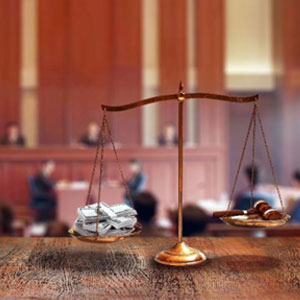 Mapping Out The Litigation Of Criminal Cases In Florida
Mapping Out The Litigation Of Criminal Cases In Florida
It’s a well-known fact that the overwhelming majority of cases are resolved without the need of going to trial. To put it into perspective, there’s a commonly cited figure in legal circles that approximately only 1% of cases actually proceed to trial. This means that the remaining 99% of criminal cases in the criminal court system of Florida resolve through some sort of a negotiated resolution, including plea deals, dismissals, or participation in a pretrial diversion or pretrial intervention program.
While it is difficult to determine exactly how many cases within the 99% that don’t go to trial resolve with a dismissal versus those that resolve with some sort of a plea deal, it’s safe to say that the majority of cases do result in some form of plea agreement. However, there are instances where cases are dropped altogether. This can happen for several reasons. If you’re genuinely innocent of the crime and the prosecutors come to recognize this, they may choose to drop the charges. Alternatively, the prosecution may encounter issues with evidence, such as difficulties in securing key witnesses or mistakes made by law enforcement during the investigation that led to evidence suppression. In such cases, the prosecution may lack the necessary evidence to secure a conviction, necessitating the dismissal of the case.
When initially consulting with an attorney, it can be challenging to predict whether your case will ultimately go to trial or not. Often, this determination becomes clearer as the case progresses and you move further into the discovery process. As you gather and analyze evidence to assess the strength or weakness of the prosecution’s case, it becomes more apparent whether a trial is likely or if a resolution through other means is more probable.
Case Closure And Record Management
When your charges are dismissed by the court or dropped by the prosecutor’s office, this typically marks the conclusion of your case. However, there can be specific situations where a judge dismisses a case, and the prosecutor chooses to appeal this decision. In such cases, a dismissal doesn’t necessarily mean the end of your case, as it could potentially be overturned on appeal, leading to its reopening.
If your charges are reduced as part of a plea deal and you agree to plead guilty or no contest to the reduced charges and receive a sentence, this generally brings your case to a close. In this scenario, the case file and records will reflect that the charges were reduced and what the new charges are, along with the outcome of the plea agreement.
Criminal cases in many jurisdictions, including the state of Florida, are typically considered public records due to broad public records laws. Therefore, the details of your criminal case may be accessible to the general public. However, there are instances where you might qualify for a sealing or expungement of your record. This process can effectively remove your case from the public domain, making it inaccessible to the general public, and effectively erasing it from public records.
Unpacking The Timing And Factors Of Criminal Sentencing
In the majority of cases, there are a couple of different ways in which sentencing can be handled. For minor offenses, especially when you accept a plea deal, many judges may choose to sentence you immediately following your plea. This means that you enter your plea, and the judge imposes your sentence right there in the courtroom. Although immediate sentencing after a plea deal is common, there are various factors and conditions that can influence when and how sentencing occurs in a criminal case.
There are instances where even with a plea deal, sentencing might be deferred to a later date. This could be due to specific circumstances related to your case. For example, the prosecutor might set a precondition for the plea agreement, such as the payment of restitution (compensation to the victim of the crime). In such cases, the judge might defer sentencing for a few months to give you time to meet this condition before finalizing your sentence.
In more serious cases, especially if you are convicted after a trial, it becomes more common for the judge to set sentencing for a later date. This is often because certain legal procedures must be followed. For instance, if it’s your first felony conviction, you are legally entitled to a pre-sentence investigation. This investigation involves interviews and assessments to gather information about your background and may include recommendations for an appropriate sentence. To accommodate this process, the judge typically sets the sentencing date for a later time.
In some cases, your attorney may decide that it is advantageous to ask the judge to schedule your sentencing for a later date. This is often done to allow the attorney time to prepare, and to allow you to secure the availability of witnesses who can come speak to the judge on your behalf.
For more information on Litigation Of Criminal Cases In Florida, a free initial consultation is your next best step. Get the information and legal answers you are seeking by calling (407) 890-8472 today.
 Mapping Out The Litigation Of Criminal Cases In Florida
Mapping Out The Litigation Of Criminal Cases In Florida